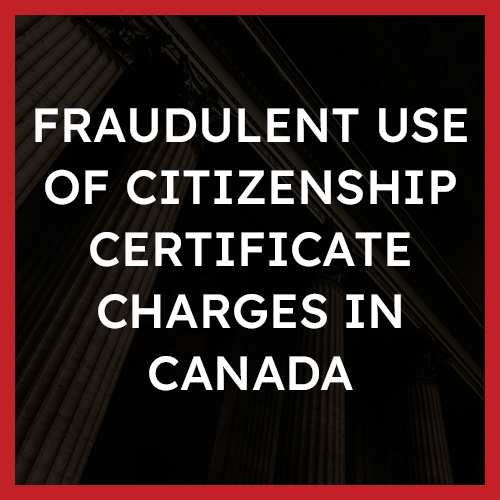Common Assault (s. 266) Charges in Canada: Offences, Defences, Punishments
What is common assault?
 Common assault is covered under s.266 of the Criminal Code.
Common assault is covered under s.266 of the Criminal Code.
Assault is an umbrella term that covers a wide variety of situations. Generally, a person is said to have committed an assault when they have directly or indirectly, intentionally or recklessly, applied for to another person or threatened to apply to another person, without that person’s consent.
Assault is a hybrid offence. This means that depending on the circumstances of your case, the Crown may elect to proceed by indictment or summarily.
Example
Some common examples of assault may be the following:
- Grabbing;
- Kicking;
- Punching;
- Chocking;
- Pushing;
- Slapping;
- Making threating gestures to someone along with words; or
- Threatening to hit someone;
Defences
A strong defence is heavily dependent on the individual circumstances of your case.
However, some common defences to an assault charge may include the following:
- Consent;
- Self-defence;
- Defence of another;
- Defence of property;
- Accident;
- De minimus;
- Reflex; and/or
- Any applicable Charter
Punishments
The sentence that you receive for a conviction of an assault will take into account the individual circumstances of your matter. The severity of the penalty is also reliant on whether the Crown elects to proceed summarily or by indictment, and whether there are any aggravating or mitigating factors present.
As a starting point, you may expect the following:
- Summary: up to two years less a day in jail and/or a $5,000.00 fine
- Indictment: up to five years in jail.
Overview of the Offence
Under s.265(1) of the Criminal Code a person commits an assault when they:
(a) without the consent of another person, he applies force intentionally to that other person, directly or indirectly;
(b) he attempts or threatens, by an act or a gesture, to apply force to another person, if he has, or causes that other person to believe on reasonable grounds that he has, present ability to effect his purpose; or
(c) while openly wearing or carrying a weapon or an imitation thereof, he accosts or impedes another person or begs.
This section applies to all forms of assault, including sexual assault, sexual assault with a weapon, threats to a third party or causing bodily harm and aggravated sexual assault.
Under s.266 of the Criminal Code:
Every one who commits an assault is guilty of
(a) an indictable offence and is liable to imprisonment for a term not exceeding five years; or
(b) an offence punishable on summary conviction.
In order to secure a conviction of assault the Crown must prove, beyond a reasonable doubt, both the actus reus and mens rea of assault.
The Guilty Act (Actus Reus)
The actus that the Crown needs to prove, beyond a reasonable doubt, for a conviction of assault is that you:
- Directly or indirectly applied force to another; or
- You attempted or threatened to apply force to another; or
- You were openly wearing or carrying a weapon and accosted or impeded the victim.
The case of R v Cadden, 1989 CanLII 2847 (BC CA) indicated that the definition of assault includes the common law terms of both “assault” and “battery”. However, it is important to note that words alone cannot constitute to an assault. Rather, what is required is that there be an act or gesture. This means that there is no need for physical contact for an act to constitute to an assault.
In relation to force, the courts have indicated that the amount of force used in an assault is not a material consideration. At the very least, an assault requires only that you touched another person without their consent.
In relation to “attempts or threatens” as per s.265(1)(b) of the Criminal Code, the court in R v Brogan, 2013 MBQB 6 (CanLII) indicated that a threat accompanied by a preparatory action can amount to a threat. For example, if you stand up, clench your fists and say “let’s go” this will amount to an assault.
Additionally, s.265(3) of the Criminal Code provides guidance on what consent is not for all forms of assault. No consent is obtained where the complainant submits or does not resist by reason of:
(a) the application of force to the complainant or to a person other than the complainant;
(b) threats or fear of the application of force to the complainant or to a person other than the complainant;
(c) fraud; or
(d) the exercise of authority.
However, it is important to note that a consensual fight is not necessarily an assault. However, this consent can be vitiated if the force caused bodily harm and that bodily harm was intended to be caused. This means that if you intended to cause someone serious bodily harm and caused them that serious bodily harm you cannot say that there was consent to a consensual fight. This was discussed in the case of R v Jobidon, 1991 CanLII 77 (SCC).
The Guilty Mind (Mens Rea)
The mens rea that the Crown needs to prove, beyond a reasonable doubt, for a conviction of assault is that you:
- Intentionally applied force to the complainant.
In order to secure a conviction of an assault the Crown has to prove that you had the requisite intention to apply force to the complainant. This means that the Crown needs to showcase that you intentionally applied that force to the complainant and any force that is applied unintentionally, due to carelessness or reflex, is not sufficient to satisfy the requisite mens rea element for an assault.
Common Assault Defences
A strong defence depends entirely on the specific facts of your case and the evidence against you.
However, some common defences to an assault charge may include the following:
- Consensual fight;
- Identity;
- Self-defence;
- Defence of another;
- Defence of property;
- Reflex; and/or
- Any applicable Charter defences
Consensual Fight
In some circumstances, if there has been a consensual fight you cannot necessarily be charged with assault. As such, if you were a part of a consensual fight, you may be able to rely on this defence as this would mean that parties are consenting to the physical contact. However, it is important to note that consent can be vitiated in certain circumstances. For example, you cannot consent to a fight where there was serious bodily harm involved.
Identity
Depending on the circumstances of your case, you may be to raise an identity defence. Often, false accusations of assault can occur, and the wrong person is charged as a result. For example, in some cases, the complainant may not be able to clearly identify the perpetrator and end up accusing the wrong person, or the authorities may have made a mistake in identifying you as the perpetrator. In order for this defence to be raised successfully, you will have to prove that you were not present at the time of the offence. This can be done by corroborating evidence, such as an alibi, to remove you from the time of the offence
Self-Defence
It is acceptable to use force to respond to force, or a threat of force, so long as that force is reasonable. In these situations, you are said to have acted in self-defence. To successfully argue self-defence, it must be proven, on a balance of probabilities, that there is an “air of reality” to your claim, that you subjectively believed on reasonable grounds that force, or a force of threat, was being used against you, your conduct had a defensive purpose, and your conduct was objectively reasonable in the circumstances. If you successfully raise a defence of self-defence it will serve as a justification for your conduct, and you will be acquitted.
Defence of Another
If you were in a situation where you responded to a force or the threat of force with force to defend someone else against an unlawful attack, provided there was no intent to cause death or grievous bodily harm, you may be able to rely on the defence of another. If raised successfully, this defence acts as a full defence which means that it serves as a justification for your conduct, and you will be acquitted.
Defence of Property
Under s.35 of the Criminal Code you may be able to rely on the defence of property defence against an assault charge. This defence typically arises when an individual’s peaceful possession of property is threatened, or someone is trying to take damage or trespass on your property. Given that the force that you used against the threat of force, or the force was reasonable, you may be able to successfully raise this defence.
Reflex Action
Reflex actions are involuntary physical actions which result because of some external source. In order to be convicted of aggravated assault, the Crown needs to prove both the actus reus and the mens rea of the offence. An involuntary act, such as a reflexive action, would negate the requisite intent that would be required for a Crown to secure an assault conviction. In order to raise this defence successfully, it must be showcased that the accused’s act was an involuntary response over which the accused has no control and would be considered akin to an automatic response to nerve stimulation.
Applicable Charter Defences
The Charter sets out your rights and freedoms before and after your arrest. If the police fail to abide by these rights, either deliberately or inadvertently, it could aid in your defence. If any of your Charter rights have been violated before or after your arrest, you may be able to have some or all of the evidence that the Crown is relying on to secure a conviction excluded under s.24(2) of the Charter.
Common Assault Punishment
The sentence that you receive for a conviction of an assault will take into account the individual circumstances of your matter. The severity of the penalty is also reliant on whether the Crown elects to proceed summarily or by indictment, and whether there are any aggravating or mitigating factors present.
s.266 – Summary
If you are convicted of an assault where the Crown proceeded summarily, you can receive up to two years less a day in jail and/or a $5,000.00 fine.
You will also have available to you a discharge, suspended sentence, stand-alone fine, custody and probation, custody and fine, and a conditional sentence.
s.266 – Indictment
If you are convicted of an assault where the Crown proceeded by indictment, you can receive up to five years in jail.
You will also have available to you a discharge, suspended sentence, stand-alone fine, custody and probation, custody and fine, and a conditional sentence.
Frequently Asked Questions
What is common assault in Canada?
Common assault is covered under s.266 of the Criminal Code. Generally, common assault is the simplest form of assault, with assault causing bodily harm or aggravated assault being the more serious forms of assault.
What is the most common type of assault in Canada?
Common assault, or simple assault, is the most common type of assault in Canada. In a common assault, there is no use or weapon, or any bodily harm done. Rather, common assault charges arise out of situations such as a push or a brawl.
What is considered common assault in Canada?
Common assault is an umbrella term that covers a wide range of acts. Generally, these acts do not involve the use of a weapon or cause any serious bodily harm. Rather, common assault can include a grab of the arm, a push, a punch or threatening gestures and words.
Will I go to jail for first-time assault in Canada?
For first-time offenders, depending on the circumstances of your case, if less serious the Crown will elect to proceed summarily, and your sentence does not necessarily have to include any jail type. However, in more severe cases where the Crown elects to proceed by indictment Crown may prosecute more harshly for a first offence and you could receive a jail sentence.
Published Decisions
R. v. Reid (Conway), 2014 CanLII 22078 (NL PC)
In this case, the accused was charged with assault after he accused threatened to kill the complainant and then assaulted the complainant by biting him on his back. The accused was sentenced to 121 days in jail and a $200.00 victim surcharge.
You can read the full decision here.
R. v. Burden, 1981 CanLII 355 (BC CA)
In this case, the complainant was sitting on a practically empty bus when the accused boarded it, looked around briefly and noticed she was sitting alone on a seat, and came and sat down beside her. Nearly every other seat on the bus was empty at the time. The accused sat beside the complainant, stared at her for a short while, then put his hand on her thigh for a period of time between 5 and 10 seconds. The accused was charged and convicted of common assault.
You can read the full decision here.
R. v. Jobidon, 1991 CanLII 77 (SCC), [1991] 2 SCR 714
In this case, the accused was charged with manslaughter, through the offence of assault, following a fistfight. This case discusses the Common law limits on consent applying to adult fist fights where there was an intention to cause serious hurt or non-trivial bodily harm to each other.
You can read the full decision here.
About The Author
Ask A Question
We endeavor to respond to questions within 24 hours. If your matter is urgent, please call our office or submit a request for a free consultation.







